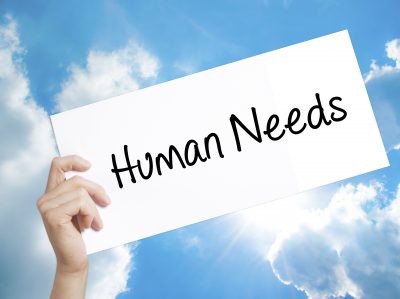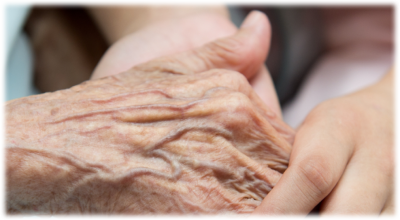
The most powerful communication tool I’ve learned is Validation. Created by Naomi Feil, Validation is a method of communicating with people with dementia. Stepping into the world of the elder leads to understanding, therefore easing distress.
I’ve distilled the concepts of Validation into two questions. They help me respond to someone with dementia who is confused and distressed. First, I ask, “What is this person’s reality at this moment?” The answer gives me a clue into her world at the moment, and then I can be with her in her world.
Then I ask, “What is she feeling right now?” I can’t see a motion picture of what’s going on in her mind, but there are clues about how she is feeling. What is her facial expression, body language, or voice intensity telling me?
Now comes the action part. First, I reflect her reality and then acknowledge the feeling.
Let me illustrate with a story about a woman in a skilled nursing facility where I provided Compassionate Touch® sessions. At around four o’clock, she fretted about getting home to make supper for her family. Pacing the hall, she asked everyone how to get back home. As time passed, the more anxious and upset she became. The staff was expected to take her to dinner at five o’clock, not an easy task when she was so determined to leave.
What is her reality? It’s time for her to get home to make supper for her family. In her mind, her family would be back soon, and she needed to be there for them. Now that I understood where she was at the moment, I could be with her in her world. What is she feeling? She seemed frustrated and increasingly angry and fearful.
I walked with her, asking simple questions about her family and what they liked to eat for dinner. I acknowledged her feelings, saying, “it’s so frustrating to be late.” I used humor, “my son thinks he will just starve if I’m five minutes late with a meal!” She nodded and laughed with me. At one point, I reassured her with touch by gently stroking her back and holding her hand. She became more present in the immediate moment, and she let go of her fixation on getting home.
What created the shift in her was not so much what I said, but rather that she felt seen and heard, therefore, validated. We walked again, but this time to the dining room where she joined her friends for dinner!
How do you feel when someone validates you?
Ann Catlin, OTR, LMT: For twenty years, Ann led in the field of skilled touch in eldercare and hospice. She has nearly forty years’ clinical experience as an occupational and massage therapist. She created Age-u-cate’s Compassionate Touch program and now serves as a Master Trainer and training consultant.

 “Touching as a therapeutic event is not as simple as a mechanical procedure or a drug, because is, above all, an act of communication…the use of touch and physical closeness may be the most important way to communicate to acutely ill (and aged) persons that they are important as human beings…” – Ashley Montagu
“Touching as a therapeutic event is not as simple as a mechanical procedure or a drug, because is, above all, an act of communication…the use of touch and physical closeness may be the most important way to communicate to acutely ill (and aged) persons that they are important as human beings…” – Ashley Montagu